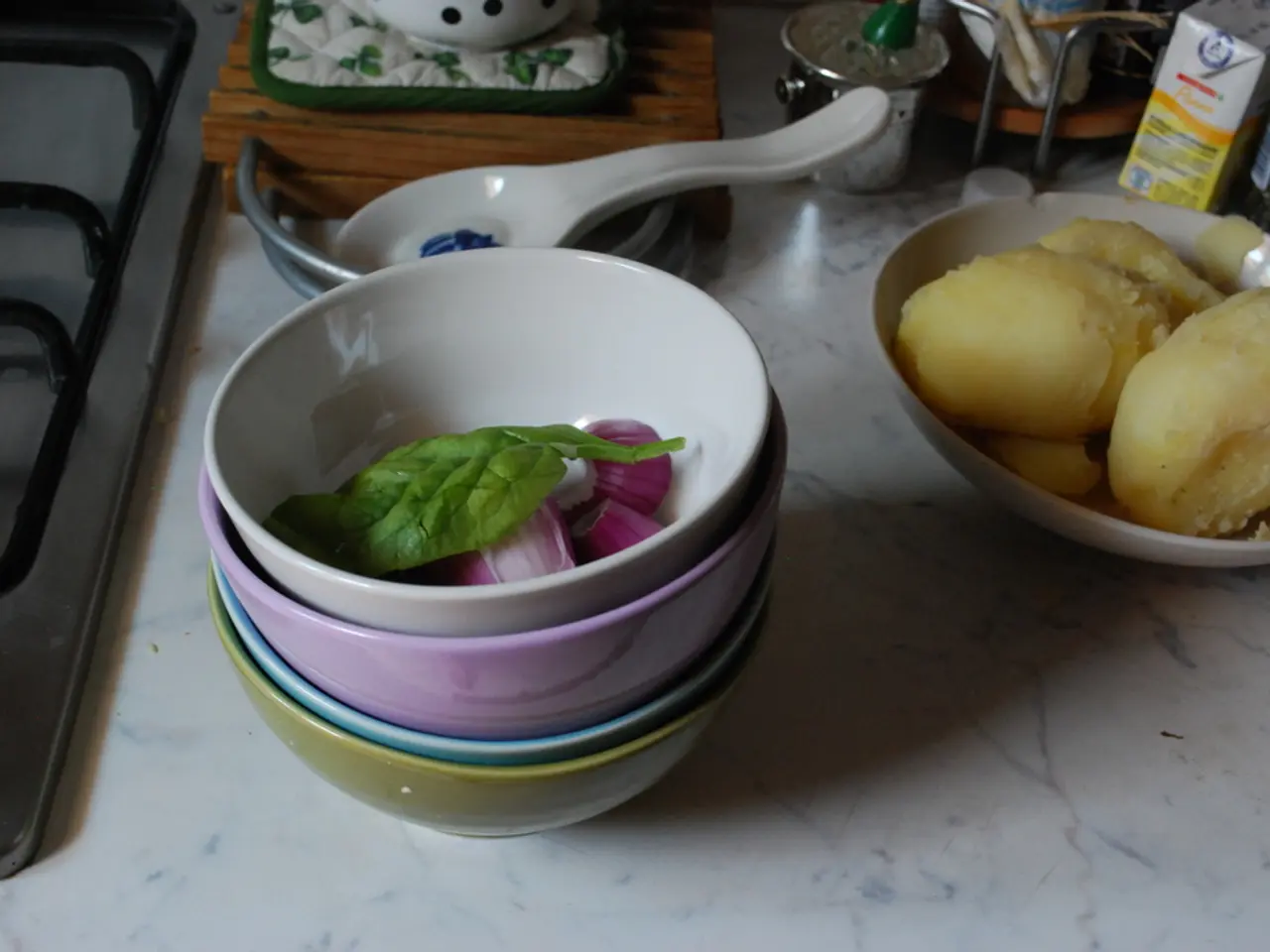Connection between Broccoli Consumption and Gout Management: Key Insights
=========================================================================
Living with gout can be challenging, but managing the condition through diet is a significant step towards reducing symptoms and flare-ups. Here's a guide to a gout-friendly diet, focusing on low-purine, anti-inflammatory foods.
No specific vegetable has been scientifically proven to flush uric acid from the body, but eating a variety of vegetables can contribute to a healthy urinary system and overall uric acid management. One vegetable that stands out for its potential benefits is broccoli.
Broccoli, a low-purine vegetable, contains various substances that support overall health and potentially aid in managing gout. These include vitamins, antioxidants, and fiber. Broccoli's low purine content makes it an ideal choice for gout patients, as it is unlikely to trigger flare-ups.
Broccoli is versatile and can be incorporated into various dishes. Here are some broccoli recipes to try: Broccoli, garlic, and rigatoni; Roasted broccoli with asiago; Broccoli with garlic and ginger.
Aside from broccoli, other foods that are beneficial for people with gout include cherries, avocados, salmon, tofu, low-fat dairy products, nuts, whole grains, and a wide variety of fruits and vegetables.
Cherries, for instance, contain antioxidants called anthocyanins that reduce inflammation and lower uric acid levels, helping to reduce the risk of gout attacks. Avocados are low in purines and rich in vitamin E, monounsaturated fats, and antioxidants that reduce inflammation and joint pain.
Salmon is a safer fish option for gout patients due to its omega-3 fatty acids that have anti-inflammatory properties. Tofu and other soy products are low-purine plant-based proteins that do not significantly raise uric acid and may help reduce it.
Low-fat dairy products, such as skim milk, yogurt, and kefir, have amino acids aiding uric acid removal and may lower gout flare-ups. Nuts and whole grains provide healthy fats, fiber, and essential nutrients that support overall health without high purine content.
Other vegetables like spinach, mushrooms, tomatoes, asparagus, and various fresh fruits like berries and citrus are gout-friendly despite some containing purines, as studies show they don’t increase flare risk.
In addition to these foods, individuals with gout should consider consuming vitamins A, E, and C, minerals such as potassium, zinc, calcium, copper, iron, and selenium, dietary fiber from whole grains, vegetables, and fruits, low-fat or fat-free dairy products, and protein from soy, beans, and other plants.
It's important to remember that while these foods can help manage gout, it's crucial to limit high-purine foods such as red meat, seafood like sardines and scallops, organ meats, and alcohol to reduce gout symptoms.
Consulting a doctor or registered dietitian for tailored recommendations is advisable. The DASH (Dietary Approaches to Stop Hypertension) and Mediterranean diets are recommended for managing gout. The DASH diet emphasizes the consumption of low-fat dairy products.
High uric acid levels can lead to the formation of uric acid crystals in joints, potentially causing gout flares. The DASH diet consistently lowers serum uric acid levels in individuals with hyperuricemia and decreases the likelihood of developing gout.
By adopting a gout-friendly diet, individuals can take a proactive approach to managing their condition and improving their overall health.
Read also:
- Mornings have become invigorating with the substitution of my traditional alarm clock for a Philips Hue light.
- Accumulating Snow Management in Winter Garden Designs Adapted for Polar Regions
- Sustainable cosmetics: Pursuing a greener and environmentally friendly beauty sector
- Incredible Deals Worth Snapping Up on Amazon This Week: 22 Must-Have Items at Reduced Prices








